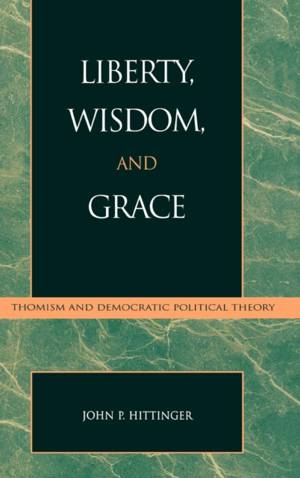
- Afhalen na 1 uur in een winkel met voorraad
- Gratis thuislevering in België vanaf € 30
- Ruim aanbod met 7 miljoen producten
- Afhalen na 1 uur in een winkel met voorraad
- Gratis thuislevering in België vanaf € 30
- Ruim aanbod met 7 miljoen producten
Zoeken
€ 230,95
+ 461 punten
Uitvoering
Omschrijving
Twentieth-century French philosophers Jacques Maritain and Yves R. Simon pioneered new approaches to understanding and defending political democracy in the wake of two world wars. Rather than break from a religious tradition that seemed to struggle against modernity and certain forms of democratic theory and practice, these thinkers instead looked back to the philosophy of Aristotle and Thomas Aquinas to propel Catholic political philosophy forward. The profound influence of Maritain and Simon is manifest in the dramatic achievements of Vatican II and in the work of the scholars of political philosophy who learned from them. John P. Hittinger, one of the finest of these scholars, provides in Liberty, Wisdom, and Grace a comprehensive survey of the Thomists' contributions to contemporary political thought as well as a detailed analysis of their approach to democracy. Hittinger treats criticism of Maritain, including the work of Catholic political writer Aurel Kolnai, and discusses the alternative democratic visions of John Locke and David Richards. His portraits of thinkers who have wrestled with democracy in the Thomist tradition, such as Leo Strauss and John Paul II, are sensitive and engaging. Addressing questions of religion and philosophy broadly understood, the essays collected here offer a searching examination of democratic theory in the modern age.
Specificaties
Betrokkenen
- Auteur(s):
- Uitgeverij:
Inhoud
- Aantal bladzijden:
- 340
- Taal:
- Engels
- Reeks:
Eigenschappen
- Productcode (EAN):
- 9780739104118
- Verschijningsdatum:
- 11/12/2002
- Uitvoering:
- Hardcover
- Formaat:
- Genaaid
- Afmetingen:
- 160 mm x 234 mm
- Gewicht:
- 621 g

Alleen bij Standaard Boekhandel
+ 461 punten op je klantenkaart van Standaard Boekhandel
Beoordelingen
We publiceren alleen reviews die voldoen aan de voorwaarden voor reviews. Bekijk onze voorwaarden voor reviews.











